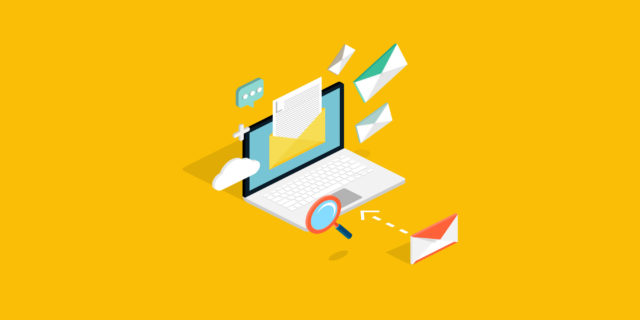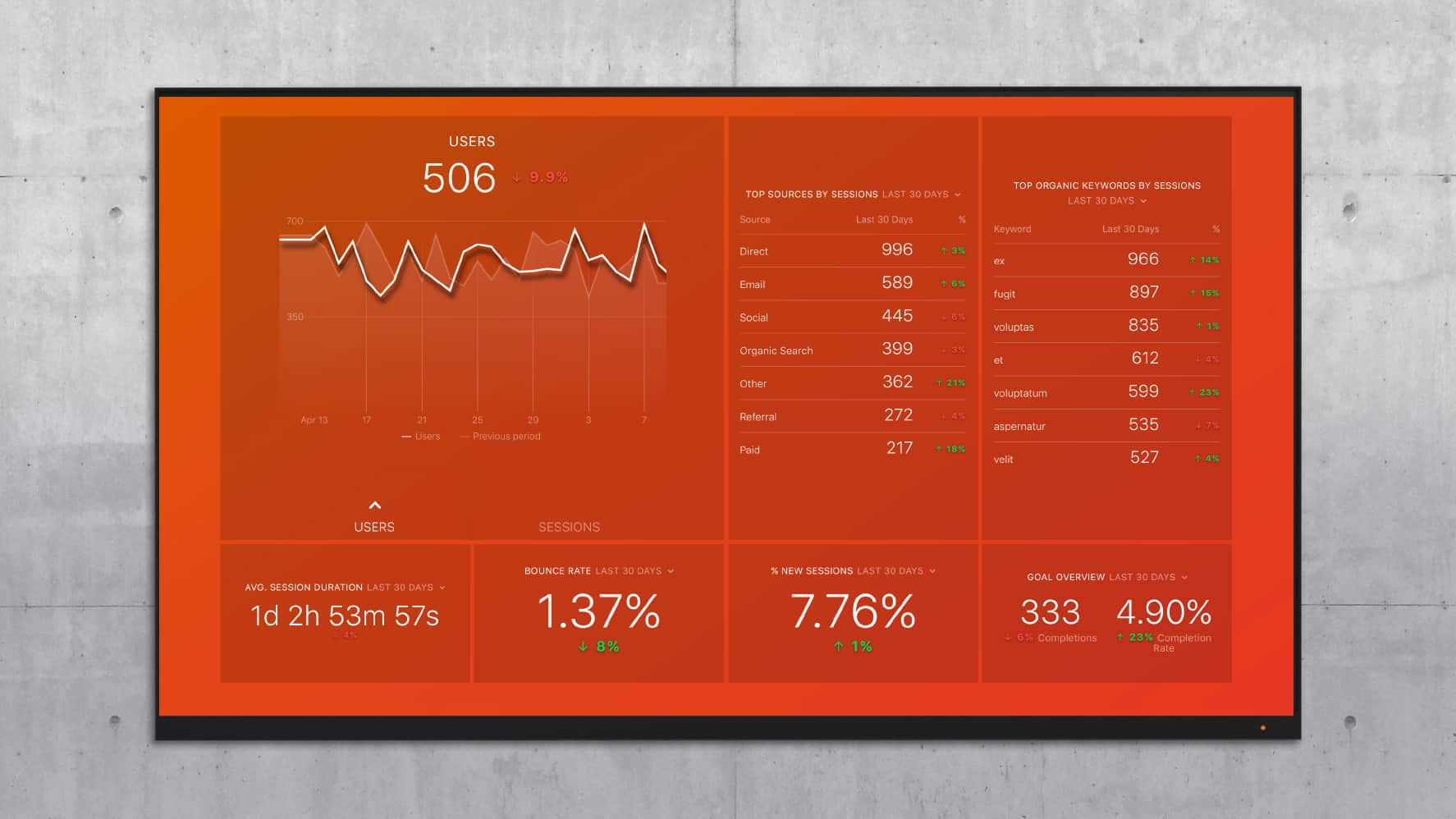Table of contents
Last year at the INBOUND conference, I met a talented digital marketer named “Marie.”
Marie had both sales and digital marketing experience (rare!), and she had just been hired to run a B2B SaaS company’s first influencer marketing program.
She had two major challenges in front of her.
First, the company didn’t know which “influencers” were most valuable for them.
Sure, there were countless people claiming to be influencers on LinkedIn and Twitter, but a line in a Twitter bio doesn’t guarantee any influence over actual buying decisions.
To make matters more challenging, her company didn’t know what they could offer influencers in exchange for an endorsement. They were growing rapidly, but were still a scrappy startup team with a shoestring budget.
Our CEO, Pete Caputa, was one of the people that she wanted to connect with about joining their influencer program. But after a quick conversation with me, she realized that he would not be an influential name for their industry.
Back to square one.
She needed more than just a list of possible leads, she needed a full strategy that would take her from initial outreach to successful campaigns.
I realized that every marketer tasked with building an influencer program probably has similar issues. Even if they do have a hefty budget, how could they convince a B2B influencer to associate their carefully crafted brand with a new product?
So, I polled our audience of digital marketers to learn how they overcome these challenges.
I wanted to know what they did differently than all the other marketers that were trying to get the attention of powerful names in their industry.
I’ve organized our learnings into 4 stages of a campaign so you can see the path from beginning to end.
Steps of B2B Influencer Marketing
Persona Definition
Before you even think about reaching out to “influencers”, you need to ensure that you have a niche to target. Your job will be even easier if you know about specific “micro niches” since you will be able to target influencers that others may not know about (or value).
Also, this will impact the effectiveness of your pitch in the next step. Let’s say that you don’t have a great idea of your buyer persona. You then reach out to a few influencers, and never hear back. You could be confusing them by pitching a product or service that is not relevant to their audience. They will not want to cheapen their brand.
Or, even worse, they may say “yes”, and then you will be paying to reach the wrong customers.
 Scott Guthrie
Scott Guthrie
SABGUTHRIE
One Tip: When identifying appropriate influencers in the B2B space, look beyond audience numbers. Always start with relevance, followed by resonance. Leave reach as the last criteria.
Often B2B subject matter experts are harder to find than B2C influencers. So look beyond the obvious places and platforms. Search instead inside technical forums and communities. Ask your employees and customers who they value as experts in the field.
Some of the most relevant subject matter experts will be those working within your client’s business. Identify these people regardless of department. Then work with them to nurture their own influence promoting that influence outside the organization.

Outreach
This is not simply about the money for influencers. They have likely spent years of their lives on building an audience that trusts them. And, if an influencer has a big enough following, he or she will get pitched many times per week with new opportunities.
Most of these pitches will be cold email templates with little authenticity. They may state a well-known fact as an attempt to show personalization. And then they will include an offer for the influencer to promote their product.
Instead, you want to prove that you have done your research and have discovered that your product will actually make an influencer more helpful to their audience. In other words, not only will the influencer be compensated in some way, but he or she will also get more engagement from their audience in the future due to their valuable content.
 Rick Ramos
Rick Ramos
HealthJoy.com
One Tip: Try and include influencers in your content with a quote. We write mostly about healthcare on our blog and our articles can have a pretty narrow audience.
To reach our audience, we include quotes from influencers. Our article on Coalitions got over 150 social shares, which is pretty amazing for such a niche piece. This happened because we included a great quote from an influencer who then shared it with their own audience.
 Jonathan Aufray
Jonathan Aufray
Growth Hackers
One Tip: To successfully reach B2B influencers, I recommend Twitter. Find influencers in your niche, curate their content and when you post their content, don’t forget to tag them on your post.
Let’s say influencer A shares an infographic. Grab that infographic, tweet it with the right caption, a few relevant hashtags and mention: ‘Via @InfluencerA’. Do that several times and then it’ll be easy for you to get in touch with this influencer.
 Christine Pietryla Wetzler
Christine Pietryla Wetzler
Pietryla PR & Marketing
One Tip: We do use influencers but we try to make it as organic as possible. One way to do this is by making very specific asks of your audience.
A very simple tip anyone can do: make a list of the top 10 “people to follow” on social media and reach out to each one personally during your next big event. If you are launching a product (for example) and want brand awareness, ask them to tweet a picture of the product and tag your company. If you want sales, offer them a referral incentive. Just reaching out one-on-one will start building good influencer relationships you can use to achieve business goals.
 Shoham Eckhaus
Shoham Eckhaus
Penguin Strategies
One Tip: Of course, B2B brands want influencers to say good things about them, and it’s usually quite a competitive task to get an influencer to notice your brand and then to get them to promote it.
Remember that every “influencer” is first of all a human being. And like most of us, they enjoy “public flattery”. So, here’s my tip:
No matter how “big” the influencer might be, start by reading his/her “pitch”, talking about it publicly, and advocating him/her in a very flattering way, giving them the best exposure you can. After you do that, most “nice humans” tend to try and “return the favor”… it’s just a very natural tendency of people.
For example, one of our clients was a brand which was selling an online service to startup CTOs. My goal was to recruit as many “high profile” startup CTOs as possible to become promoters of the service.
I approached a list of our most desirable influential startup CTOs and invited them to be speakers (or answer a Q&A) at a set of Meetups and Webinars, in which we shared best practices related to similar services with the startup community.
The result was that about 50% of the influencers I approached actually wanted to contribute, and that supplied me with an opportunity to connect with them in a very personal way as we were preparing the session as I was the host of those events.
I never asked my “guests” to speak positively about our product. I told them to be 100% professional and objective about products in our domain… but unsurprisingly almost all of them ended up speaking super positively about us, because they were nice people doing what comes naturally to nice people: they tried to “return the favor”.
 Carl Parnell
Carl Parnell
Influence Agents
One Tip: In terms of cold outreach, I found that the personal approach was KEY when creating lasting relationships with influencers.
It might sound obvious, but a shocking amount of people will use “cold call” email/DM templates. If you’re reaching out to anyone for the first time, it needs to stand out! So show you’ve done research on that individual.
I’d highly suggest looking at what articles they’ve written/shared recently and find common ground with the content you’re hoping they’ll promote for you.
A quick example could be: “I noticed you recently wrote/shared an article about XYZ and the part about XYZ caught my attention.
We just wrote an article on XYZ and thought it agreed/advanced on XYZ.
Being a [niche] expert yourself, I’d really love to get your opinion on our article. If you found it insightful and think your audience would get value from it, perhaps you could share it with them?”
By taking this approach, it shows you’ve actually looked at who they are, and what they’re posting/sharing. It really helps them identify with who you are by standing out from those awful templates.
 Ryan Robinson
Ryan Robinson
ryrob.com
One Tip: I’ve had the opportunity to work with, meet and interview dozens of the world’s most recognizable entrepreneurs and business authors—from Tim Ferriss to Richard Branson, Chris Guillebeau, Pat Flynn, Gary Vaynerchuk and more.
Above all else, the one thing that’s helped me to build meaningful relationships with these busy entrepreneurs is treating them like REAL people and being very straight to the point with how I can provide value to their businesses.
First and foremost, you need to have a great reason for reaching out… don’t waste their time, so start by making sure your offer is genuinely a good fit for them. With most B2B influencers, their job is to constantly evaluate new opportunities—both in terms of strategic initiatives they’ve identified, along with assessing and validating inbound opportunities that could be worth their time or financial investment. If you don’t have an offer (or ask) that’ll help them today, then save your time and reach out to someone else.
However, if you do have a relevant ask, craft a very brief, straightforward email to send their way and make a compelling case for why they’ll be missing out if they don’t participate. Here’s the exact cold email outreach approach I use to land B2B influencers and their companies as clients
 Lee Odden
Lee Odden
TopRank Marketing
One Tip: Too much influencer engagement is transactional because companies try to use B2C influencer marketing tactics in B2B and it’s not the same. Using the “ERA approach”, B2B influencers can be more effectively engaged.
E – Empathy. Take the time to understand what your influencer is really interested in, what they do, what they care about, their goals and even what their challenges are. Just like you would with a customer.
R – Recognition. Start influencer recruiting by recognizing them in a relevant and compelling way. When you lead the engagement by providing something of value vs. just asking the influencer to do something for you, it shows you’re interested in their success. It’s also a hint of what is to come if they work with you.
A – Ask. Understand what’s important to your influencers and recognize them publicly in a relevant way to set the stage for your ask. The “yes rate” goes through the roof when you do a little up front work with influencers since the majority of marketers only focus on themselves and their brands. It won’t be hard for you to create meaningful relationships with tier one influencers in your industry.
 Travis Hawley
Travis Hawley
Viral Nation
One Tip: When it comes to B2B influencer marketing, we must be completely honest. It’s very premature when compared to B2C. LinkedIn has shown explosive growth due in part to the ability to upload videos on the platform. To really stand out and be successful with B2B influencer marketing, a brand must seriously consider partnering with a “LinkedIn influencer” who has captivated an audience through highly engaging and valuable content.
 Lee’Ann Burgess
Lee’Ann Burgess
Social Vibe Marketing, Inc.
One Tip: Start by defining your audience and goals when planning an outreach strategy and be detailed and “human” in your approach when reaching out to influencers in your niche.
I just began an influencer marketing campaign for a new product that just launched in select Costco locations, on Amazon and other online retailers. This product, which is a high-protein, healthy snack (ShrewdFood.net) can easily be consumed by a variety of audiences. They are gluten free, non-GMO, all natural, low in carbs and calories for starters and I have further segmented our audience into micro niches and continued my outreach to influencers in those spaces; such as people who are on a keto diet, those with celiac or gluten sensitivity, health and fitness and so on.
To gauge the level of influence, I use tools like Sendible. In addition to being a social media scheduling platform, it also allows you to find people or businesses by specific keywords and obtain information on their audience, the size of their following, Klout, and other platforms they are active on. I have had a great response from influencers since this is a product that resonates with them, they can relate to and is well-aligned with their audience.

Promotion
Influencers receive plenty of pitches. If they accept too many of them, they will eventually lose the trust of their audience. So, they need to choose products and services that will help them build their audience over the long term.
The compensation that you are offering is only a one-time payment. Once the relationship ends, the income stream evaporates. But, a larger audience is an asset that will continue to pay off for years into the future. Influencers know this because… you know, that is how they became influencers in the first place!
Instead of focusing all your energy on compensation, think about how you can “pay” the influencers by helping them build their audience.
 Kathleen Booth
Kathleen Booth
IMPACT
One Tip: Back in January, IMPACT launched a new webinar program featuring marketing influencers and thought leaders.
Each month, we offer two new, live, educational webinars that address issues of interest to our community. To date, our featured guests have included:
- Databox CEO Pete Caputa,
- Author Todd Hockenberry,
- Unbounce CEO Oli Gardner,
- CXL Founder Peep Laja,
- Wordstream Founder Larry Kim
- Author Joey Coleman.
These influencers come with large audiences, so the value for IMPACT is in gaining access to their community of followers. For the influencers, the value proposition of participating in our webinars is similar – access to IMPACT’s audience. We aggressively promote our webinars by email, on social media, and via pay-per-click ads with the goal of delivering the largest possible audience to our webinar guests. We ask our influencer guests to do the same.
As you can see, this is a very reciprocal relationship which I believe is the key to our success with the webinar program. It’s not simply IMPACT asking these influencers to help us reach new audiences – we’re delivering tremendous value to them as well. Influencer marketing works best when it’s win / win, so you can either choose to pay influencers to participate in your campaign or find other ways of delivering value that will make it worth their while.
 Dario Sipos
Dario Sipos
DWR
One Tip: Don’t sell with your content.
No matter the helpfulness of our content, it is still connected with our brand and will feel “salesy” in the eyes of users.
This makes it difficult for our brand to connect with the influencer’s audience. So for this reason, our influencers step in to engage with their own networks and promote the brand without the impression of wanting to “sell” brand to people.
We organize a conference where our influencers engage with the general public to create video-based interviews, which we then present on the social media.
In that way, influencers engage with their networks and promote our brand, making the message appear more sincere.
 Adam Aigbokhae
Adam Aigbokhae
Six & Flow
One Tip: The best tip that we can give is to know your audience. Once you know your audience extensively, you can begin to map out the influencers and messaging will resonate with them.
Some people will focus on technical nuances and others will look for wider impacts of a product.
Without understanding your audience in depth, you will end up focusing on the wrong areas. You wouldn’t ask Cardi B to sell an Azure-based cloud platform to CIOs, in the same way you wouldn’t ask Larry Kim to sell Lipgloss.
We worked with a client who had been white-labeling services for large enterprise but wanted to pivot to delivering under their own distinct brand. We employed a personal branding and influencer strategy, first building up the individual networks of the sales team and then pairing this with relevant micro-influencer networks, or in simple terms, experts within the field.
We then created and released high-value content across each of the sales team’s networks and worked with influencers to boost the message. Because the sales team knew their audience, their common pain points and had connected with relevant influencers they were able to leverage their services effectively without needing a huge brand presence. The client was able to step out of the shadows of the companies they had been white-labeling for and use a combined organic social and influencer marketing strategy to build awareness and generate leads.
 Diana von R
Diana von R
Diana von R – Social Photographer
One Tip: Once an influencer has been spotted, and the audit has taken place to ensure they are a right fit for your brand… The most important thing is to treat this influencer well.
Let them choose the product you want to send them. Ask for a price sheet and appreciate that it likely will cost money as it takes time for them to build their following. At the same time, ensure it doesn’t go over your budget. You need to meet at an equilibrium point and if it’s not the right fit for both of you, it won’t work. Think of all the “currency” you have – money, exposure, even work experience at the larger brand may help out.

Partnership Building
Okay, so let’s say you just ran a promotion with an influencer, and it went well for both parties. You need to figure out how to run another campaign with the influencer, or get introduced to other’s in their network.
Of course, this depends on the quality of that first campaign. If you run campaigns with influencers that are not helpful to their audience, they have no obligation to continue working with you. They could get paid by anybody else to run campaigns with low engagement.
Think about how you can use the 80/20 rule to build stronger ongoing relationships with a smaller number of influencers.
 Oyindamola Bamgbola
Oyindamola Bamgbola
Oyindamola Bamgbola
One Tip: Be friendly but professional when speaking to influencers.
Remember that influencers are people just like you, hence, you should speak to them nicely. But this shouldn’t mean that your conversations should be restricted to calls only. Ensure you document all conversations and ask for invoices rather than collect prices offhand.
Documenting your discussions with influencers ensures all KPIs are met and agreements are not changed at the last minute.
 Brian Honigman
Brian Honigman
Honigman Media
One Tip: My number one tip for B2B influencer marketing is consistency. A partnership between an influencer and an organization will perform best if both partners are consistent with their messaging and how they reach their audience, as well as how they interact with one another. A long-term, consistent relationship where the creator supports the brand in a genuine way and vice versa will always perform better than a one-off post or interaction.
 Tammy Duggan-Herd
Tammy Duggan-Herd
Campaign Creators
One Tip: We are an agency partner of the B2B technology company HubSpot, which is a respected and well-known name in the Inbound Marketing community.
We leverage our connections inside the company to invite influencers to co-host, speak or be featured in our online and in-person events. For example, the HubSpot VP of Marketing was a guest for a live Ask Me Anything hosted in our Facebook community, one of the HubSpot Academy Professors co-hosted a webinar with us, and their CMO presented at the annual conference we co-sponsor.
After each successful event, we ask that influencer to introduce us (usually via email) to anyone else at the company they think would be willing to participate in future events. Having this introduction come from someone they know, who has experienced working with us first hand, has led to a lot of “yes”es!
 TJ Welsh
TJ Welsh
Stryde
One Tip: Come up with creative ways you can collaborate with other businesses. This will make you stand out from the competition. This is especially important since influencers are getting so many pitches a day.
For example, we have worked with a business that offers wedding wine box gifts for brides and grooms. However, in order to reach their target audience, we have reached out to wedding photographers to collaborate with. We have been able to get much closer to their target audience by giving photographers a wine box to give away as a gift to the couple. In return, we get valuable images of the product in a unique setting that provides the social proof we need to stand out from the competition.
Measure Your Influencer Marketing Campaign
Ultimately, the success of your influencer marketing efforts should be measured in paying customers.
After all, if you actually want to improve the lives of an influencer’s audience, they need to be using your product or service to solve their problems.
But, that may happen months after you begin working with an influencer. At the beginning of the relationship, here are some metrics you an use to measure your campaign:
- Direct traffic: If an influencer is promoting your brand by giving a talk at a conference, you may want to look at the direct traffic in the 7 days following the speech. These are the visitors that are directly typing your brand into their browser. Use this marketing automation dashboard to gain valuable insights about the amount of traffic generated from your influencer marketing campaigns.
- Traffic from A Specific Social Network: If an influencer has a significant following on LinkedIn, for example, you will want to see how many site visitors came from Linkedin. You can even look at the specific links they used to click into your site.
- Traffic by Referrer: If an influencer is posting about your product on their blog, you will want to see how much of your traffic originates from each of their posts.
You can learn more about these three types of traffic in our guide to Google Analytics metrics.
You can use our Google Analytics Website Traffic dashboard to track all these sources for free. Here is a quick preview:

Are there any other tactics that have helped you run successful B2B influencer marketing campaigns? Let us know in the comments!














